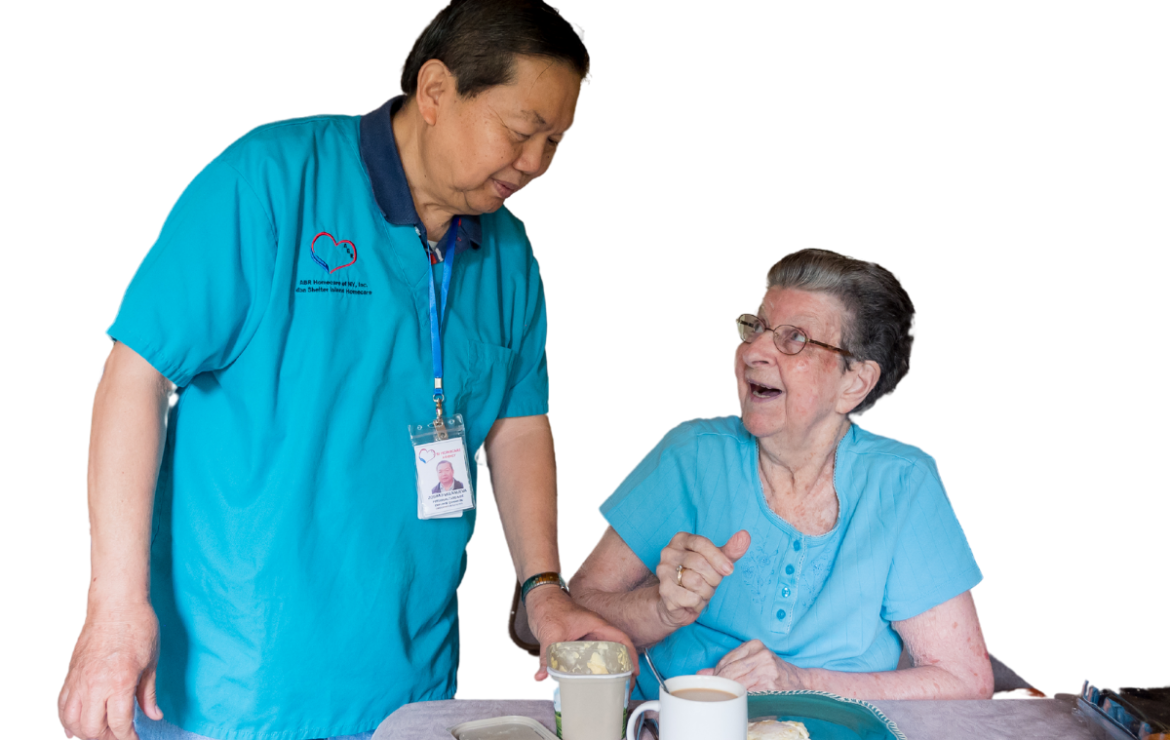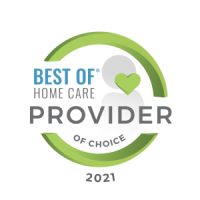Senior Homecare and Nutrition

The Importance of Nutrition for the elderly
Good nutrition is of great importance, especially for the elderly. The problems that arise from the lack of a balanced diet, often lead to 5x more physical pain, emotional distress, and prolonged medical treatment that makes the lives of seniors difficult. Multiple studies suggest that physical incapacities such as the decrease in muscle mass and bone density, which make it extremely difficult for seniors to bend, walk, sit-down and move their arms, are directly linked to the lack of essential nutrients.
This is where a balanced diet becomes evermore necessary. As we age, we become twice as susceptible to new and recurring diseases. Nutrients keep you energized, help with maintaining a healthy weight, increase your appetite, and lower the chances of developing chronic illnesses such as heart disease, high blood pressure, diabetes, and osteoporosis. Since seniors are more vulnerable than ever, there needs to be active effort to make sure they are not susceptible to muscle weakening that can lead to accidents such as falls, bone injuries, or intolerable back pain. Having a balanced diet can prevent all of these unnecessary burdens.
What does a balanced diet look like?
To stay healthy as you age, you should eat foods that contain lots of nutrients without a lot of extra calories, and are low in cholesterol and fat such as:
- Nutrient Dense foods, such as vegetable, fruits, nuts, seeds, and soya chunks
- Better convenient alternatives, like shifting to fat-free, or low-fat milk
- Whole grains, like oatmeal, whole-wheat bread, and brown rice
Steps to eating healthy and roadblocks you may face
Seniors often deprioritize their meal plans, leaving themselves vulnerable to having irregular eating patterns, loss of appetite, and extreme weight loss. In order to maintain a healthy diet, seniors need to:
- Prepare weekday meals on the weekend. If a senior is on their own, make sure they cook in bulk batches that can be placed in the freezer and be easily microwavable for the whole week. This helps in making sure that serving sizes are sufficient and seniors won’t go through all the trouble of cooking everyday.
- Have constant supervision. Seniors must always be reminded to eat at the right time and to eat the right nutrients. If supervision is not within reach, it is crucial to set alarms for eating time and it is important to set daily reminders and updates of food intake, to keep track of diet adjustments.
- Ask for assistance. Preparing food is one thing, having the constant motivation to eat is another. If you are experiencing chewing problems result in your nearest dental care provider, shift to soft chewable dishes that are easy to intake, or ask someone to mince it for you. Never be afraid to ask for help.
Where does homecare fit into all of this?
As convenient as it is to look up the best nutrients for seniors on the internet, a one size fits all approach to nutrition intervention is significantly less effective in comparison to personalized daily meal plans that are prepared and focused for your elderly loved ones. Having an in-home caregiver to help with meal planning, grocery shopping, cooking, meal time companionship, feeding, clean-up, or even just the adherence to certain foods can help seniors maintain a healthy, and well-balanced diet.
References
AG, K. (2013, September). T1 Advances in Nutrition Research. Annals of Nutrition & Metabolism, Vol. 63, pp. 1-22. Retrieved from : https://www.jstor.org/stable/10.2307/48507343
Beyer, M. (2019, February 24). What diet is best for older adults? Retrieved from https://www.medicalnewstoday.com/articles/324514
Butler, N. (2019, October 15). Healthy Eating for seniors. Retrieved from https://www.healthline.com/health/healthy-eating-for-seniors
Butler, E. R. (1987). Current Trends: Nutrition in the Elderly. Generations: Journal of the American Society on Aging, 12(1), 45–49. http://www.jstor.org/stable/44873122
Klemm, S. (2020, May 21). Special Nutrient needs of older adults. Retrieved from https://www.eatright.org/health/wellness/healthy-aging/special-nutrient-needs-of-older-adults
Thirivananthapuram. (2021, February 14). Nutritional support scheme for the elderly. Retrieved from https://www.thehindu.com/news/national/kerala/nutritional-support-scheme-for-elderly/article33835634.ece
U.S. National Library of Medicine. (2021, August 27). Nutrition for older adults. MedlinePlus.https://medlineplus.gov/nutritionforolderadults.html.
Wilkinson, T. (2011). Strategies to improve nutrition in elderly people. Best Practice Journal. https://bpac.org.nz/bpj/2011/may/elderly.aspx
World Health Organization. (2019). In Essential Nutrition Actions: mainstreaming nutrition through the life-course (pp. 24–148).
World Health Organization. http://www.jstor.org/stable/resrep27894.9







